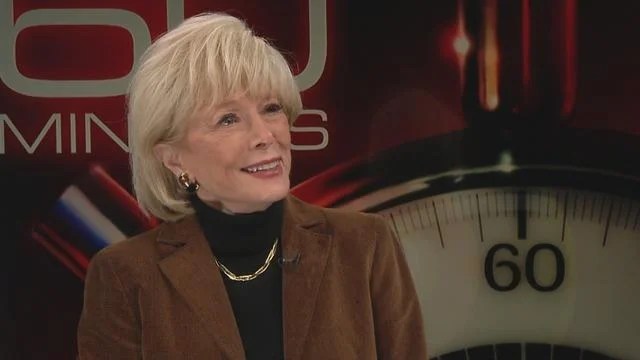The world of journalism has always been a platform for truth, clarity, and storytelling. Among the most respected shows in this realm is "60 Minutes," a program that has made its mark across decades by delivering compelling narratives and impactful reporting. This program, which first aired in 1968, has gained a reputation for its in-depth investigations and interviews with prominent figures, making its reporters household names. The dedication and tenacity of these journalists have brought light to crucial issues, making them pivotal in shaping public discourse.
As we explore the lives of "60 Minutes reporters," we uncover not just their professional journeys but also the personal stories that drive their relentless pursuit of the truth. The reporters behind the iconic segments are not just journalists; they are storytellers, advocates, and often, catalysts for change. Their ability to delve into the complexities of human experience and societal issues sets them apart in the field of journalism, and their work has earned them numerous accolades and a loyal following.
In this article, we will shine a spotlight on some of the esteemed "60 Minutes reporters," examining their backgrounds, notable achievements, and the impact they've had on journalism. From their gripping interviews with world leaders to their investigative pieces that have uncovered corruption and injustice, these reporters exemplify the spirit of quality journalism that "60 Minutes" stands for.
Who are the Most Notable 60 Minutes Reporters?
Throughout its history, "60 Minutes" has featured a roster of distinguished reporters, each bringing their unique perspective and style to the show. Some of the most notable reporters include:
- Mike Wallace
- Morley Safer
- Diane Sawyer
- Lesley Stahl
- Anderson Cooper
What Makes 60 Minutes Reporters Unique?
What sets "60 Minutes reporters" apart from their peers is their commitment to investigative journalism. They delve deep into issues, often spending months researching and interviewing sources before presenting their findings. This dedication to thoroughness not only informs their audience but also holds powerful entities accountable.
How Have 60 Minutes Reporters Influenced Public Opinion?
The influence of "60 Minutes reporters" on public opinion cannot be overstated. Their segments often spark national conversations and lead to significant changes in policy and public perception. By shedding light on underreported issues, they encourage viewers to engage with and understand complex topics.
What is the Background of a 60 Minutes Reporter?
One of the most recognized faces of "60 Minutes" is Lesley Stahl. Below is a brief overview of her biography and career.
| Name | Lesley Stahl |
|---|---|
| Born | December 16, 1941 |
| Education | B.A. in Political Science from Wheaton College |
| Career Highlights | Correspondent for CBS News, former co-host of "Face the Nation" |
| Notable Interviews | Interviews with President Obama, Donald Trump, and various world leaders |
| Awards | Emmy Awards, Edward R. Murrow Award |
What Are Some Iconic Segments from 60 Minutes Reporters?
Over the years, "60 Minutes reporters" have produced numerous iconic segments. Here are a few that have left a lasting impact:
- The interview with Iranian President Mahmoud Ahmadinejad by Mike Wallace.
- Lesley Stahl's piece on the opioid crisis in America.
- Morley Safer's investigation into the Vietnam War.
- Anderson Cooper's coverage of the aftermath of Hurricane Katrina.
Why Are 60 Minutes Reporters Respected in Journalism?
Respect for "60 Minutes reporters" stems from their unwavering commitment to ethical journalism. They prioritize facts over sensationalism and strive to tell stories that matter. This integrity has garnered them respect from audiences and peers alike, solidifying their status as trusted sources of information.
How Do 60 Minutes Reporters Prepare for Their Stories?
The preparation process for "60 Minutes reporters" is meticulous. It involves:
- Identifying significant issues that require in-depth investigation.
- Conducting extensive research to gather background information.
- Interviewing a wide range of sources to obtain diverse perspectives.
- Fact-checking and verifying information before airing segments.
What Future Holds for 60 Minutes Reporters?
As the media landscape continues to evolve, "60 Minutes reporters" will likely adapt to new technologies and platforms. They may explore innovative storytelling methods while maintaining the high journalistic standards that have made them successful. The future of investigative journalism remains bright with their dedication to uncovering the truth and informing the public.
In conclusion, "60 Minutes reporters" play a crucial role in the journalism world. With their relentless pursuit of truth and commitment to impactful storytelling, they continue to influence public opinion and drive meaningful conversations. The legacy of these reporters is a testament to the power of journalism in fostering transparency and accountability in society.
Inside The Life Of Simon Cowell's Son: Latest News And Updates
Unraveling The Layers Of Gabrielle Union's Divorce: A Journey Of Resilience
Unraveling The MLS Cup Bracket: A Comprehensive Guide


